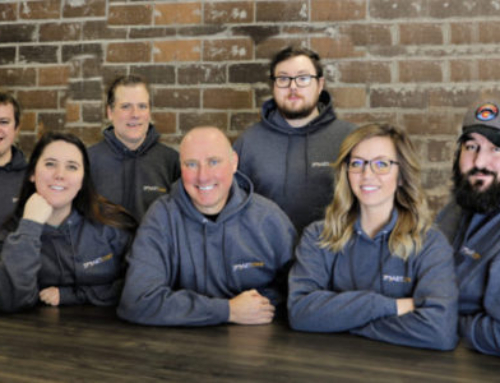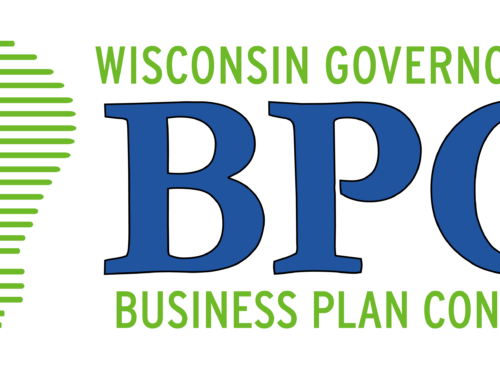 When working with startups, it can help to have firsthand experience. The Wisconsin Economic Development Corporation’s new entrepreneurship program director, Ed Javier, brings plenty of that to his new role. He has helped build and scale well-known startups, including Cars.com and HomeFinder.com. He has also led technology launches into new industries, and as a general manager sold the Philippines’ leading real estate website to Rocket Internet. We sat down with Ed to learn more about his background and his plans for his role at WEDC, where he will oversee programs such as Capital Catalyst, Entrepreneurial Micro-Grant, Capacity Building grants, Seed Accelerator and Key Strategic Partners.
When working with startups, it can help to have firsthand experience. The Wisconsin Economic Development Corporation’s new entrepreneurship program director, Ed Javier, brings plenty of that to his new role. He has helped build and scale well-known startups, including Cars.com and HomeFinder.com. He has also led technology launches into new industries, and as a general manager sold the Philippines’ leading real estate website to Rocket Internet. We sat down with Ed to learn more about his background and his plans for his role at WEDC, where he will oversee programs such as Capital Catalyst, Entrepreneurial Micro-Grant, Capacity Building grants, Seed Accelerator and Key Strategic Partners.
Welcome to your new role! What made you want to pursue an opportunity like this?
Ed Javier: I moved to Milwaukee in 2016, and when I got to Wisconsin I knew I wanted to get involved in the startup community. It’s something I’ve been doing in previous positions, because I love mentoring startups and sharing what I’ve learned in my own business experience. I wound up co-founding Milwaukee Startup Week and then worked with some organizations that were providing services to startups. That was my entryway to the community, and then someone suggested I take what I was doing and continue it statewide through this position.
LB: What’s your history with startups as an employee or founder, rather than a promoter or advisor?
EJ: I began working with startups in 2000 when I lived in Chicago. Since then I’ve worked with five startups. What brought my wife and me to Milwaukee was the sale of a startup we were running overseas. My wife is originally from the Milwaukee area, and after we sold that company we decided to head back here.
LB: What did you find when you got here?
EJ: Milwaukee’s startup community reminded me of Chicago almost 20 years ago. It’s still very young, and I knew that I could do some things to help it grow. I began meeting with people and attending events to get to know the community. Meeting people and getting engaged didn’t take long.
Q: So why startups as a career, rather than opportunities at more well-established companies?
EJ: I hate to say it, but you can get addicted to it. The launch is very exciting, working in the trenches with your co-founders and employees, seeing that success. It’s like playing ball in that you put in that hard work, all that practice and then you start winning games. I am hooked on the idea of working hard and then seeing success.
LB: What problems did the Milwaukee entrepreneurial community need to solve, and how did you and they go about it?
EJ: What I saw happening in Milwaukee is something that I see lots of other places: everyone in their silo, working on their own ideas. There are a lot of resources on the ground to help entrepreneurs, which is great, but if no one is tapping into them then you have resources that aren’t being maximized. Milwaukee Startup Week came about because we not only wanted to get the organizations that help startups together, but we also wanted to showcase all those resources to the entrepreneurs who often didn’t know about all, or even any, of them.
My goal was to get rid of silos, have organizations meet, see how we were all doing similar things and then start working as a community. For example, do you have a business in the water sector? Send them to The Water Council. We needed to build a network among organizations, not just entrepreneurs, to get people to the right place, and let those organizations know what resources they can tap into, promote or offer themselves.
LB: Is that what your statewide template is going to look like?
EJ: Yes. The same concept works in cities, counties and states. There are accelerators WEDC is funding, for example, that do 60 percent of the same type of work in each location on the operations side. They are all recruiting applicants, running programs, having final pitch events, for example. But are they meeting and talking about efficiencies and best practices? I know from my own history that when I’m not an expert, I like to find someone else doing that thing well and then go learn from them.
LB: What are today’s startup challenges, in Wisconsin and in general?
EJ: It’s always going to be money, and the availability of it. There are a lot of sexy stories out there about entrepreneurs getting a bunch of venture capital money and becoming multimillionaires or billionaires. We want to show entrepreneurs that a successful startup doesn’t always look like that, and that you can build success on a smaller scale.
LB: What does your ramp-up period look like for the rest of 2018 and getting into 2019?
EJ: I’m just amazed at how many programs WEDC offers, and I am in the process of learning about them all, so I can contribute in telling our story. I want to make sure that when an entrepreneur comes to us that he or she is directed to the right help and has a smooth path to more training or whatever is needed. I want to make sure people who have ideas within our network of programs and facilities know they can come to me, and I can help them make the connections they need. I have that accelerator mindset: what can I do for the entrepreneur we are helping now, and how can we make it more efficient and better for the one that comes next?
I love startups, and I love the idea of working with the people who are helping startups and entrepreneurs. I can still do some mentoring on the side, which really excites me, and also spend my time working with all the people in the startup community who are making things happen.
For more information on the entrepreneurship programs Ed will lead, click here.









FOLLOW US